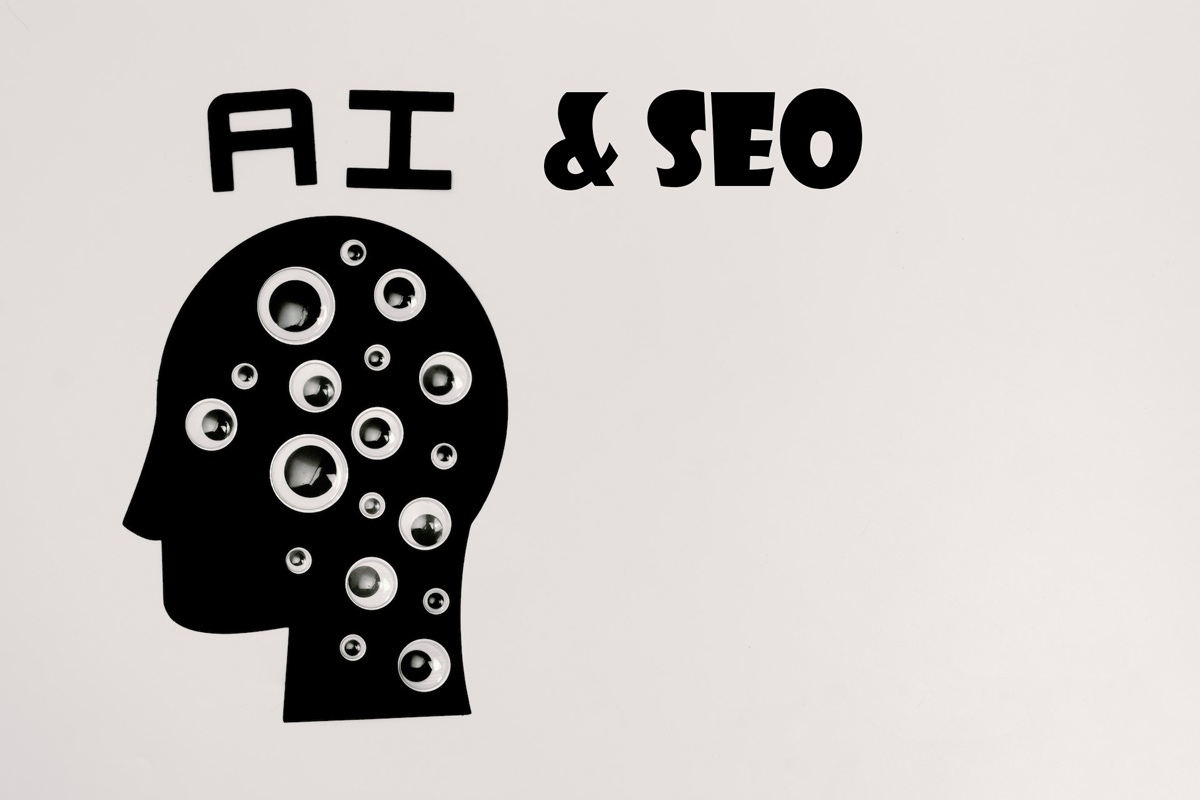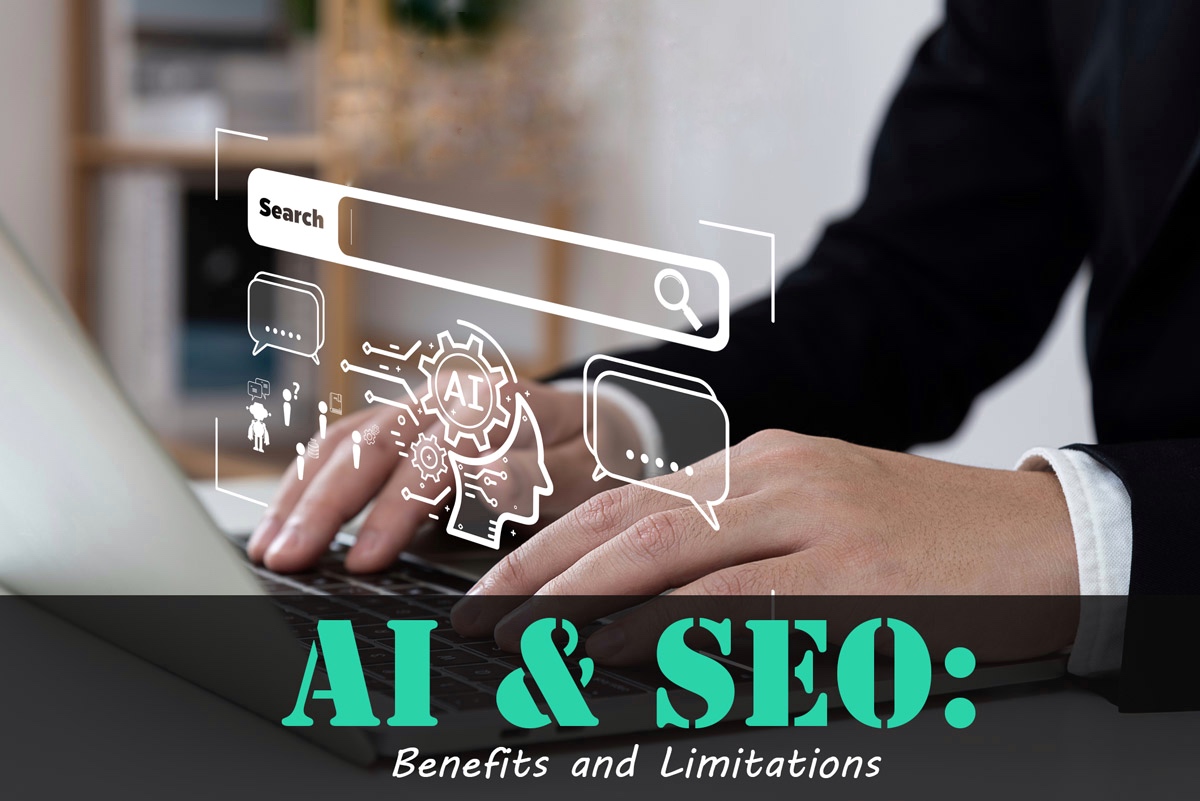The advancement of artificial intelligence has revolutionized search engine optimization (SEO) and digital marketing in recent years. With their ever-evolving extraordinary insights into SEO strategies, AI-powered SEO tools are becoming more and more capable of improving online visibility and optimizing websites to drive organic traffic. That’s why the intersection of AI and SEO doesn’t stop fascinating us.
But the question is:
How should we approach SEO strategies using artificial intelligence for better results?
To answer, we need to consider not only the benefits of AI for SEO but also its challenges and limitations.
So, in this article, we’ll delve into the world of AI SEO to discuss its benefits and shortcomings objectively. Along the way, we also introduce some of the best AI tools for SEO.
Harnessing the Potential of AI for SEO Optimization
Obviously, artificial intelligence has made a lot of jobs easier and SEO optimization is certainly one of them. However, using AI SEO tools just to make the task simple and quick is a dangerous thing. Although artificial intelligence is fast and easy to use, it is not as intelligent as humans (at least, not yet!).
We should keep in mind that the aim of using AI for SEO is optimizing websites for higher online visibility and profit, not merely to make the job easy.
So, businesses and their SEO professionals cannot entirely rely on AI SEO software. They should know to what extent AI tools are helping and always keep an eye open for their shortcomings.
AI and SEO: Benefits of Artificial Intelligence for SEO
First, let’s go over how we can benefit from AI in SEO strategies briefly. Then, we’ll discuss AI limitations.
-
AI Has Improved Keyword Research
AI tools can analyze vast amounts of data in a matter of seconds. They identify search patterns and suggest high-performing keywords to target the content better and improve the search engine results page (SERP) rankings. AI keyword generators, such as Google Keyword Planner and Twinword, leverage natural language processing algorithms to understand user intent and provide more precise targeted keywords.
There are many paid and free keyword generators, like Surferseo, Wordkraft, and ChatGPT, that do both keyword and competitor research.
-
AI Data Analysis Can Help Content Optimization
AI-powered tools use machine learning to analyze the content of a website. They assess the readability, keyword density, and semantic relevance to provide insights for content optimization.
This helps to:
- align the content with search engine algorithms,
- create content based on user preferences,
- improve user engagement,
- reach higher search rankings.
-
Artificial Intelligence Can Enhance User Experience (UX)
AI can deeply analyze user behavior, user preferences, and engagement metrics. Also, AI can help in A/B testing. The results guide the SEO optimizer in making necessary adjustments to optimize the user experience on the website.
In addition, AI-based chatbots can lead to UX optimization by:
- offering personalized recommendations and support to users,
- improving the user/customer’s satisfaction,
- increasing the chance of conversions.
One of the currently good AI user personalization tools is Monetate which helps businesses with conversion rate optimization (CRO).
-
Increase Search Engine Visibility by Voice Search Optimization
Alexa, Google Assistant, Siri, and many other voice assistants are being used all over the world to make searching for information easier for users. So, voice search optimization has become crucial for a website. AI supports us on this front as well.
AI-powered algorithms make use of natural language processing to interact with humans and interpret the user’s requests. So, the content of a website needs to be fine-tuned with how people usually do a voice search.
AI tools analyze voice search patterns and identify conversational keywords. Businesses have to incorporate these keywords and patterns in their website content to become more visible in voice search results.
-
Enhance Local SEO Services
For many businesses with physical locations reaching local customers and users is essential. Some AI local SEO tools, like Brand Intelligence and MarketMuse, provide information about local customers, local competitors, location-based trends, user sentiment, etc.
This means businesses can have useful data to get more local website traffic and adjust themselves to new trends and user preferences.
-
Use Artificial Intelligence for Image Optimization
AI algorithms can suggest the best settings for an image according to the context it is used in, the content, and its purpose. Besides, they can edit the image for better quality and size.
Reaching a balance between image size and quality has always been a challenge. But AI-based image optimization tools, like ShortPixel, can assist you in finding that balance to improve page speed.
-
Reach Better Predictive Analytics
For a business to keep ahead of the competition, it needs reliable predictive insights to adjust the SEO strategies proactively and properly.
As AI can analyze large amounts of data, it can help businesses by:
- recognizing recent search trends,
- identifying user behavior,
- evaluating market dynamics.
These data provide the necessary information to make data-driven decisions about future strategies.
-
More Effective and Efficient Link Building
AI tools can assist in planning and developing more effective outreach strategies by:
- analyzing backlink profiles,
- assessing the quality and relevance of external links in content,
- and identifying potential link-building opportunities.
The ultimate result of successful link-building is improving the website’s authority and search rankings.
To sum up, from keyword research to UX optimization and improving content for voice search, AI and SEO go hand in hand to enhance SEO performance and drive sustainable organic traffic to a website. And, the result would be more profit for businesses.
Limitations and Pitfalls of AI SEO Tools

While artificial intelligence search engine optimization has been a sensation in the world of digital marketing in recent years, it has also proved to be limited and even disadvantageous in some areas.
SEO professionals must be aware of the following AI and SEO shortcomings and challenges.
-
Misinterpretation and Lack of Contextual Understanding
Data patterns and algorithms are the cornerstones of all AI tools in making decisions and interpreting/generating content. So, it is challenging for them to understand contextual meaning, tone, and gradation.
What’s more, artificial intelligence cannot make judgments based on intuition, because it doesn’t have one! This means it cannot identify underlying motivations, intentions, and emotions behind user’s queries. This is particularly a problem when it comes to providing personalized and relevant recommendations to improve UX.
Yet another challenge is AI struggles to interpret unstructured data, like images, audio, and videos. Although natural language processing and machine learning have improved a lot, understanding such data is still not AI’s strong suit.
Therefore, misinterpretations and inaccurate responses or recommendations by AI software are common problems we should look out for.
-
AI Tool’s Limited Creativity in Generating Content and Developing New SEO Strategies
Artificial intelligence is quick in analyzing data and finding patterns, but it cannot think outside the box! AI-powered tools make content by copying from the existing information in the data available to them. That’s why, we can never get unique and compelling content out of them.
For example, websites that use Chat GPT for SEO blog articles, or any other AI content generator, end up losing users after a while because the content is a copy of a copy of a …. For Google, the priority is valuable content that is accurate and helpful for the users.
So, eventually, only content written by humans will get noticed due to its unique and new information.
Another example of AI’s limited creativity is coming up with new SEO strategies. While AI tools can rapidly update themselves and adapt to algorithm updates, only human is capable of creative thinking that can lead to innovative techniques.
As a result, if a business solely depends on artificial intelligence SEO strategies, it will soon fall behind the competition.
-
AI’s Dependency on Data Quality and Quantity
There are many AI tools nowadays but the quality of their services is not the same. Deciding which AI software is suitable and reliable is up to you.
The quality mostly depends on the input data. If the data available to an AI tool is insufficient, outdated, and of poor quality, then its responses will be biased, inaccurate, and irrelevant.
For instance, a keyword generator cannot recommend proper high-traffic keywords for a given topic if the database is limited.
This is even more tangible for more specialized topics. For example, if you are looking for information on the most recent changes in the world of science and technology, there are only a couple of AI chatbots that are up to date on events currently happening. Others have only access to data produced more than a year ago.
Besides, if the topic requires specialized expertise, you cannot count on accurate and deep understanding and insights from artificial intelligence. The reason is that AI chatbots rely on generalized patterns and algorithms, not domain-specific knowledge.
So, when using an AI tool, check the generated content and recommendations for quality and accuracy. Having a high-quality and up-to-date database is key for an AI tool to perform optimally.
-
Unintentional Violations of Ethical and Legal Guidelines
AI software may unintentionally violate ethical and legal guidelines. Below are a few possibilities you should watch out for.
- Producing plagiarized content and violating copyright,
- Engaging in black hat SEO techniques, like keyword stuffing and cloaking,
- Violating privacy regulations by unauthorized/unlawful use of user’s personal information and data.
To avoid such problems, SEO professionals must make sure that the AI tools and content align with regulations and ethical standards. Otherwise, they damage the website’s reputation and lead to penalties from search engines or even a lawsuit.
All in all, AI SEO can raise a few problems for a website that overly depends on data-driven insights, AI content, and automated SEO tasks without much human oversight and expertise.
Conclusion: What Does All This Mean for AI SEO?
As experts in SEO, we tried to have an honest and objective evaluation and analysis of the way AI and SEO work. Clearly, artificial intelligence has paved the way for more efficient and professional SEO services, but the pitfalls can’t be ignored.
Now based on our years of experience in the SEO industry, we conclude that those SEO professionals with appropriate knowledge and skills can get the best out of AI tools in making informed decisions and adopting the most effective SEO strategies. Because leveraging AI for SEO without human oversight and intervention can be counterproductive and inefficient.
SEO companies should aim to reach a balance between utilizing both human and artificial intelligence for better website optimization and more valuable and informative content. This is perhaps the most important factor to be successful in digital marketing in the future.
This is exactly what we are trying to do at Top Organic Leads. Hire us for professional SEO services and pay after you get leads! Call for a free consultation at .


